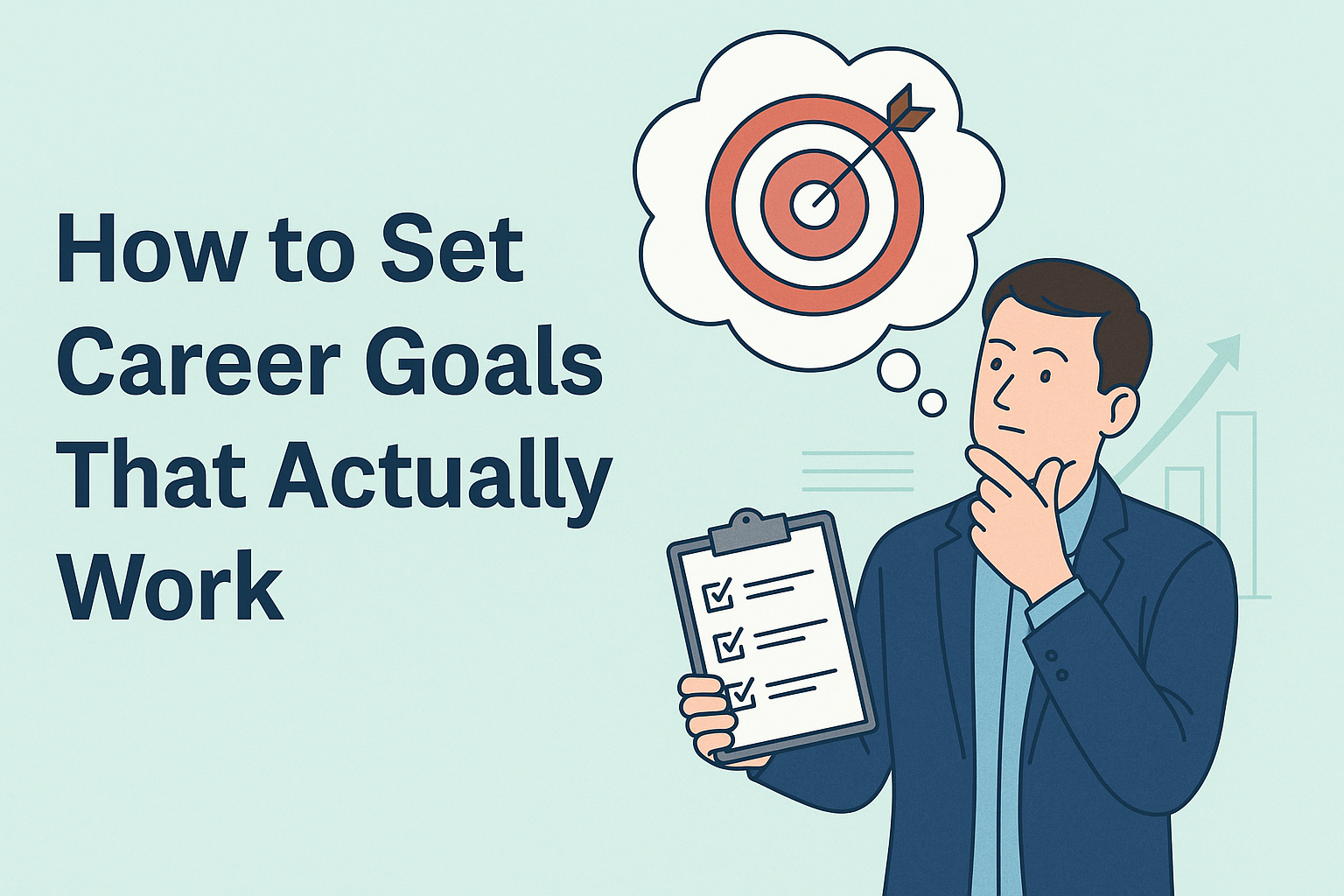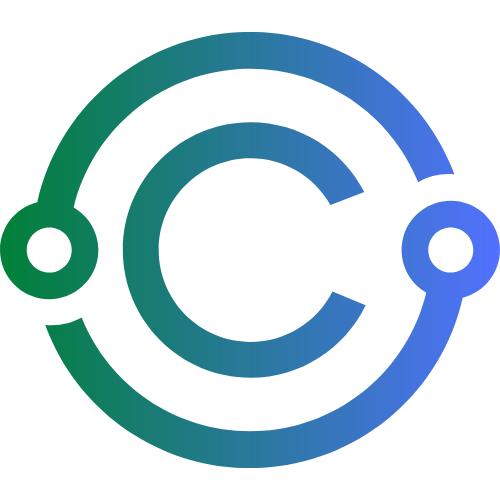How to Set Career Goals That Actually Work

Career goals are the backbone of professional growth. Without them, you risk drifting through roles without a clear direction or purpose. But here’s the problem: most people either don’t set career goals at all, or they set vague ones like "get promoted" or "make more money" that are hard to measure, track, or stick to.
In this blog post, we’ll show you how to set clear, actionable, and motivating career goals that actually lead to progress. You’ll learn proven goal-setting frameworks, how to adapt goals to changing life stages, and how to stay accountable without burning out.
1. Understand Why Career Goals Matter
Career goals help you:
- Stay focused and avoid distractions
- Make smarter job decisions
- Track your progress and celebrate milestones
- Stay motivated during setbacks
When done right, goals turn vague ambitions into real outcomes.
2. Reflect Before You Plan
Before setting any goals, take a step back and reflect on what you truly want. Ask yourself:
- What energizes me at work?
- What kind of work do I never want to do again?
- Where do I see myself in 3, 5, or 10 years?
- What lifestyle do I want (remote, corporate, flexible)?
Tool: Use a free reflection worksheet like this Life Compass PDF or journal using prompts from SelfCares.io.
3. Use SMART Goals (The Right Way)
SMART goals are:
- Specific (clearly defined)
- Measurable (quantifiable)
- Achievable (realistic)
- Relevant (aligned with your life)
- Time-bound (deadline-driven)
Example: Instead of "get promoted," try: "Become a Senior Marketing Manager by Q2 next year by leading 3 campaigns and improving team KPIs by 25%."
4. Break Down Long-Term Goals into Milestones
A 5-year goal feels intimidating. That’s why you should break it into milestones.
Example: Goal: Become a Data Analyst in 2 years.
- Month 1-3: Complete beginner Excel and SQL courses
- Month 4-6: Build 2 portfolio projects
- Month 6-9: Do informational interviews with 10 analysts
- Month 9-12: Apply for internships or freelance gigs
Use tools like Notion or Trello to visually track these milestones.
5. Align Goals with Your Values
If your goals clash with your values, they’ll never stick.
Ask yourself:
- Do I want recognition or impact?
- Am I driven by creativity or structure?
- What kind of legacy do I want to leave?
Exercise: Rank your values with this free Career Values Worksheet.
6. Make Goals Flexible, Not Rigid
Life changes—so should your goals. It’s okay to pivot.
Reassess your goals every 3-6 months:
- Are these goals still aligned with where I want to go?
- What new insights or interests have emerged?
- What’s working or not working?
7. Track Your Progress with Systems
Use systems, not just motivation.
Ideas:
- Weekly or monthly check-ins
- Use habit trackers or apps like Goalscape or ClickUp
- Celebrate micro-wins to maintain momentum
Pro Tip: Share your goals with a trusted friend, mentor, or accountability group.
8. Tie Goals to Skill Development
Focus on skills, not just job titles. A skill-first approach gives you flexibility.
Example: If your goal is to become a Product Manager, focus on:
- Communication
- Project Management
- Data Analysis
- Design Thinking
Use platforms like:
9. Create a Personal Career Map
Use visual tools to create a roadmap.
Steps:
- Start with your current position
- Map out 2-3 target roles
- Add the skills, experiences, and qualifications needed for each
Try tools like Canva Career Map Templates to build a clean, visual version.
10. Learn to Reset Without Guilt
Sometimes, goals don’t work out. Life throws curveballs. When that happens:
- Reflect, don’t self-blame
- Keep what worked
- Drop what didn’t
- Set new goals based on what you’ve learned
Remember, success isn’t a straight line.
Case Study: Leila’s Career Goal Reset
Leila, 27, originally set a goal to become a Financial Analyst at a big bank. She mapped out her plan: finish her MBA, land an internship, get certified in financial modeling.
But halfway through her MBA, she realized her passion lay in sustainability. Instead of powering through a mismatched goal, she reset. She pivoted toward sustainable finance, took a course in ESG investing, and landed an internship at a green finance firm.
Result: Today, Leila works at an ESG investment company, combining her skills with her values.
Key Takeaway: Career goals aren’t permanent. They’re tools to guide your journey, not cage you.
11. Common Career Goal Mistakes to Avoid
- Setting vague or overly broad goals
- Not writing goals down
- Trying to do too much too fast
- Failing to review or track progress
- Following others’ goals instead of your own
12. Combine Professional and Personal Goals
The best career goals support your whole life.
Examples:
- "Get a remote job by next year so I can move closer to family"
- "Build a portfolio that lets me freelance part-time and travel"
- "Lead a project that aligns with my passion for education access"
Final Thoughts
Setting great career goals isn’t about having it all figured out. It’s about making thoughtful, forward-moving choices aligned with who you are and what you want.
You don’t need a 10-year plan to succeed—you need a system, flexibility, and clarity of direction. Whether you're pivoting industries, aiming for a promotion, or launching a new project, your goals should be your compass.
More from UJ+:
- How to Choose the Right Career Path When You’re Unsure
- Feeling Stuck? Here’s How to Restart Your Career
- Creating a One-Year Learning Roadmap
Subscribe to UJ+ for more actionable career advice, worksheets, and success stories designed to help you build a career that truly fits your life.

